Uncovering the Underreported and Ignored
Students are using Columbia’s Rare Book & Manuscript Library to create new scholarship in African American and African Diaspora Studies.
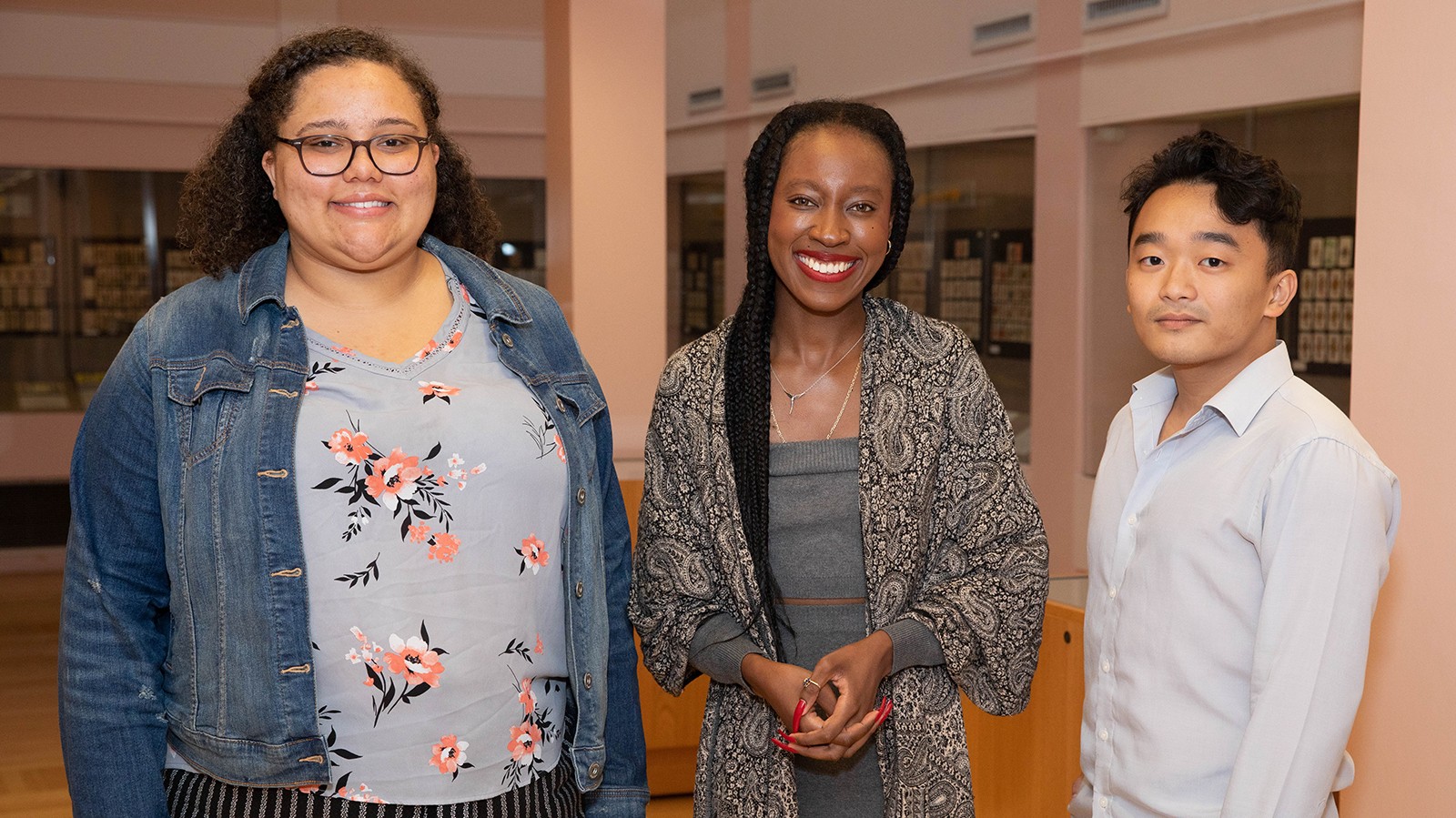
Last December, Columbia University announced the formation of the African American and African Diaspora Studies department where undergraduate, graduate and doctoral students will have an opportunity to produce innovative scholarship, conduct research and examine African American life in U.S. society.
The department is less than a year old, but Columbia Libraries already has robust collections to support this new discipline and its students.
“Since African American history is inseparable from American history, the University's archival holdings have always been relevant to the project of African American and African Diaspora Studies,” said Thai Jones, the Herbert H. Lehman Curator for American History at the Rare Book & Manuscript Library (RBML). “For instance, we have documents related to buying and selling of enslaved people by prominent New Yorkers from the colonial and revolutionary eras.”
While there are artifacts dating back to the 1700s, many of the important documents have been acquired in the past few decades. Some of these include the papers of Amiri Baraka, David Dinkins, C.L.R. James, Hubert Harrison and Alexander Gumby as well as the Black Journalists Oral History Project. Last year, Columbia acquired the archive of Yuri Kochiyama, a Japanese American civil rights and social justice activist who was a close friend of Malcolm X.
Over the last five years, in an encouraging trend, Jones has seen a tremendous increase in the number of students who access the RBML.
“The kind of teaching we do in the archives, through classes like the Columbia University & Slavery seminar, allows students to participate actively in the process of creating historical knowledge," said Jones. “By acquiring advanced research skills, they are able to see how past scholars have used and misused the historical record. And they feel empowered to make their own contributions to these ongoing conversations.”
Below are photos of students from the African American and African Diaspora Studies department and the Columbia University & Slavery seminar interacting with some of the artifacts from the collections.
Image Carousel with 6 slides
A carousel is a rotating set of images. Use the previous and next buttons to change the displayed slide
-
Slide 1: Tommy Song, a senior, has been “studying white supremacy in the founding of disciplines and the organization of U.S. higher education.” He has done “archival research in topics that range from the rise of white supremacist historiography, Afro-Caribbean radicalism in early 20th century New York City and the rise of college fraternities in post-Civil War America.”
-
Slide 2: In this photo, Song is looking at the Plimpton Slavery collection, which he plans to incorporate into his Columbia historical tour app to help people “have a better understanding of not just the realities of slavery, but also how memories of enslavement were preserved—in this case by wealthy white philanthropists like George Plimpton.”
-
Slide 3: A junior, Bérénice Sylverain, is working with the newly formed African American and African Diaspora Studies department to create its library guide. It will be a “comprehensive online resource where scholars from inside and outside the University will know what is available to them at Columbia’s Rare Book & Manuscript Library.”
-
Slide 4: According to Sylverain, “There is an intimacy in reading, touching and experiencing the papers of figures like Hubert Harrison and Amiri Baraka. You are in a deep, personal conversation with their work and their accomplishments.”
-
Slide 5: Keziah Anderson, a senior, has focused her research on the Alexander Gumby Collection of Negroiana. In the early 20th century, Gumby worked as a waiter in the University cafeteria. He created detailed scrapbooks documenting black history as well as gay culture in New York City. Anderson learned that the collection initially wasn’t handled as carefully as others, illustrating what she calls, “the inequalities in archiving African American history.”
-
Slide 6: “One of my favorite pieces in the Gumby collection was a drawing of a nude man that I found tucked in the back of Gumby’s scrapbook. This drawing, which resembles the Le Penseur statue outside of Philosophy Hall, demonstrates the ways in which Gumby reimagined Columbia's campus as a black space,” Anderson said.
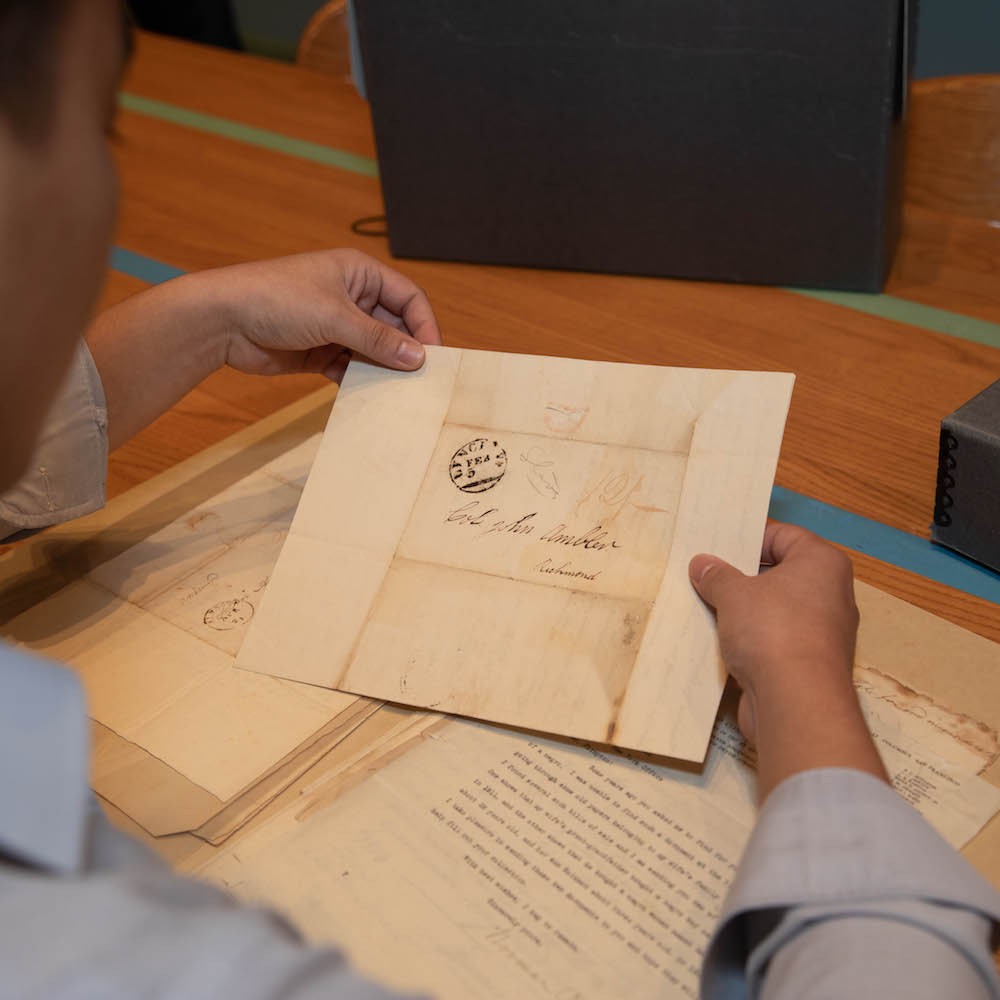
Tommy Song, a senior, has been “studying white supremacy in the founding of disciplines and the organization of U.S. higher education.” He has done “archival research in topics that range from the rise of white supremacist historiography, Afro-Caribbean radicalism in early 20th century New York City and the rise of college fraternities in post-Civil War America.”
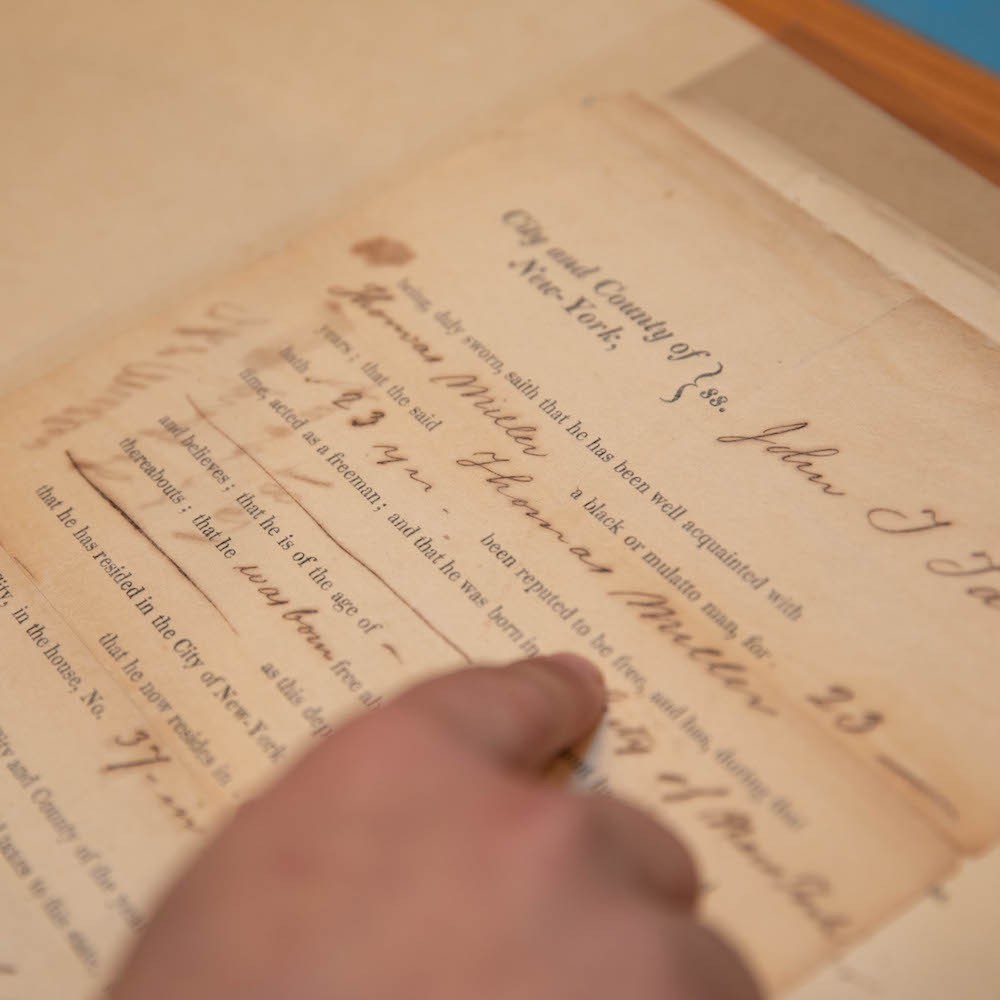
In this photo, Song is looking at the Plimpton Slavery collection, which he plans to incorporate into his Columbia historical tour app to help people “have a better understanding of not just the realities of slavery, but also how memories of enslavement were preserved—in this case by wealthy white philanthropists like George Plimpton.”
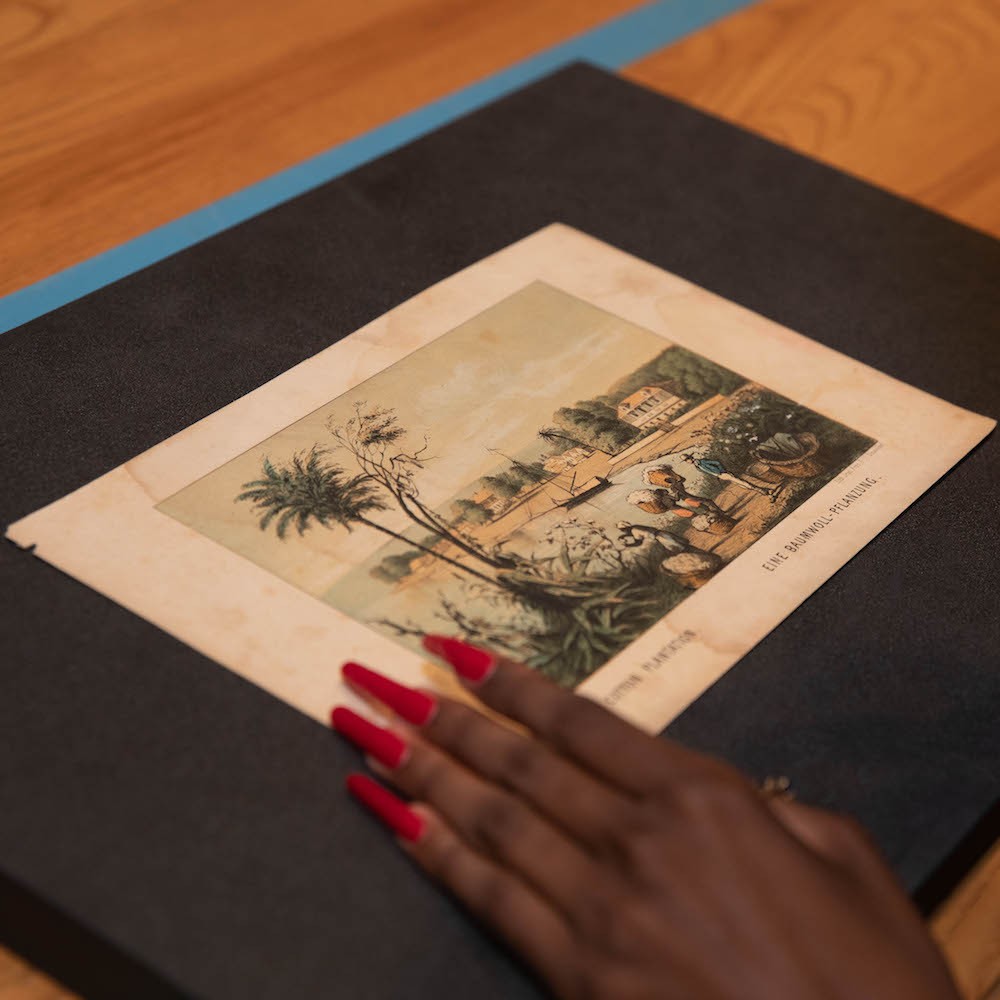
A junior, Bérénice Sylverain, is working with the newly formed African American and African Diaspora Studies department to create its library guide. It will be a “comprehensive online resource where scholars from inside and outside the University will know what is available to them at Columbia’s Rare Book & Manuscript Library.”
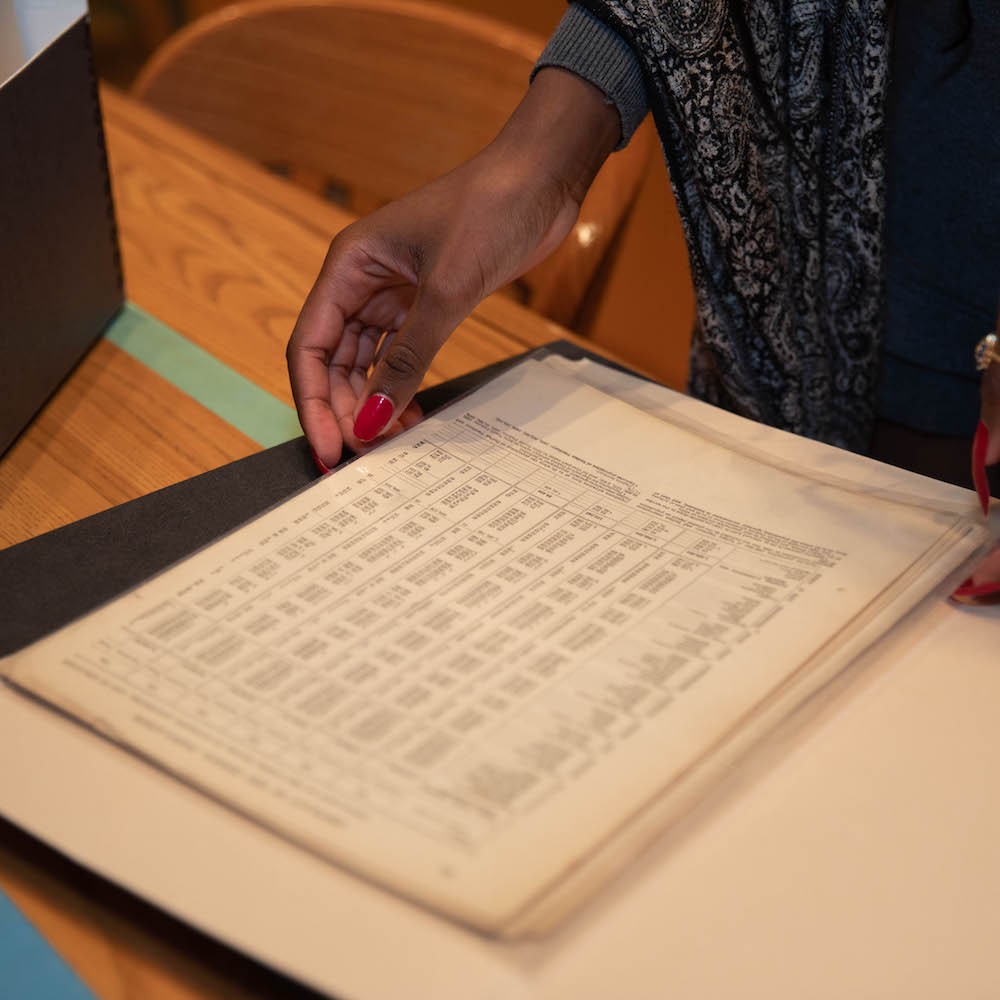
According to Sylverain, “There is an intimacy in reading, touching and experiencing the papers of figures like Hubert Harrison and Amiri Baraka. You are in a deep, personal conversation with their work and their accomplishments.”
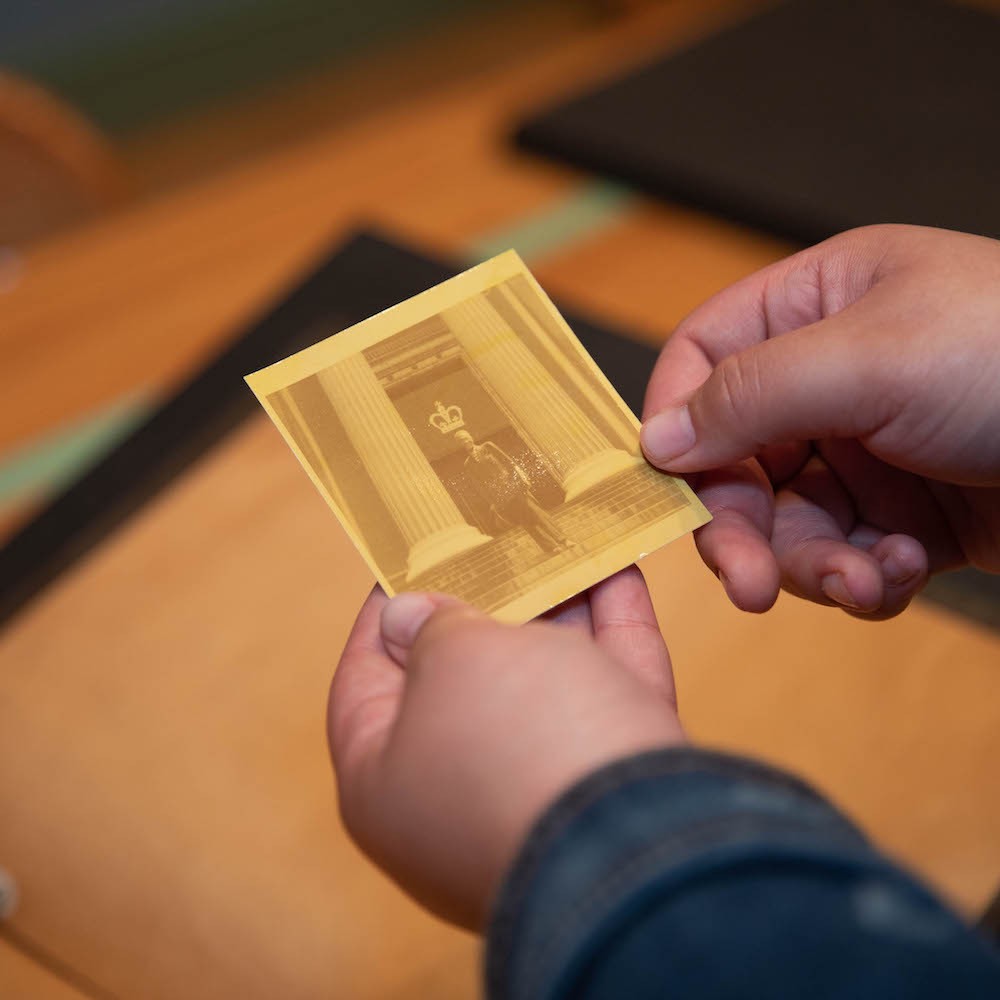
Keziah Anderson, a senior, has focused her research on the Alexander Gumby Collection of Negroiana. In the early 20th century, Gumby worked as a waiter in the University cafeteria. He created detailed scrapbooks documenting black history as well as gay culture in New York City. Anderson learned that the collection initially wasn’t handled as carefully as others, illustrating what she calls, “the inequalities in archiving African American history.”
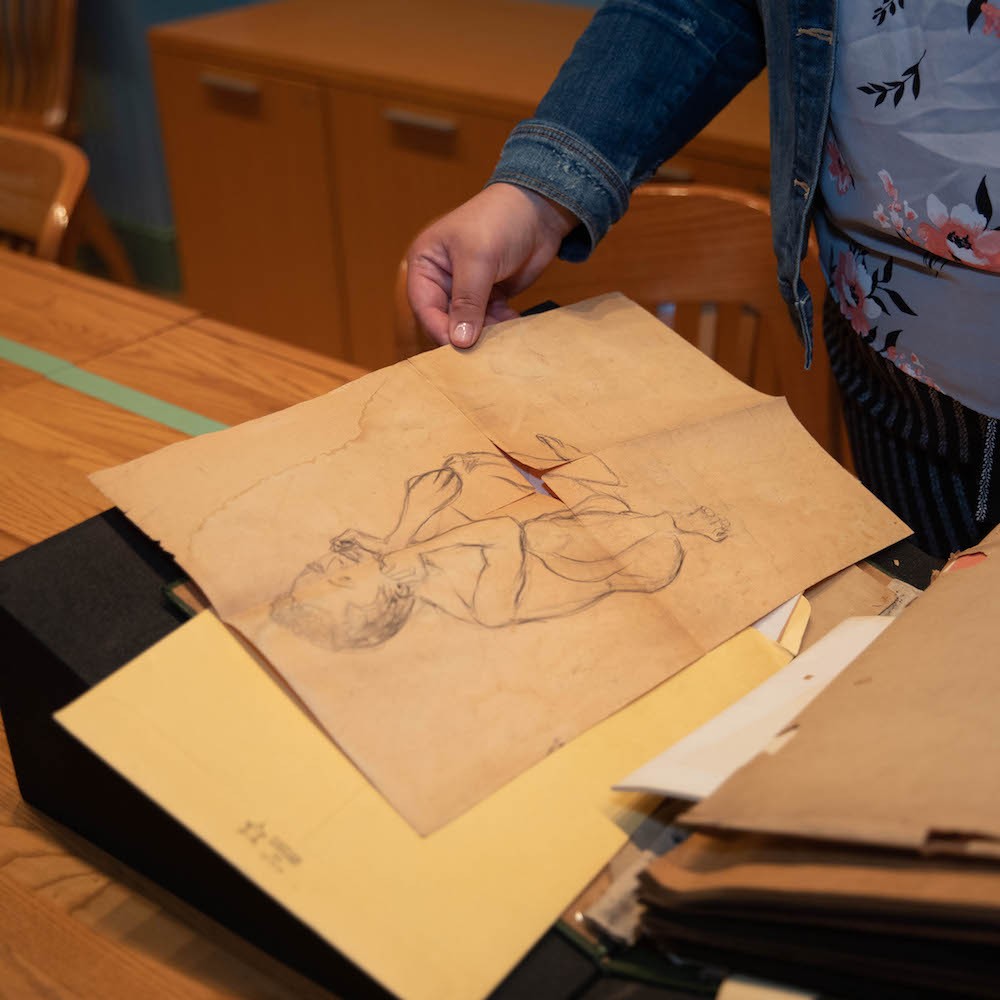
“One of my favorite pieces in the Gumby collection was a drawing of a nude man that I found tucked in the back of Gumby’s scrapbook. This drawing, which resembles the Le Penseur statue outside of Philosophy Hall, demonstrates the ways in which Gumby reimagined Columbia's campus as a black space,” Anderson said.